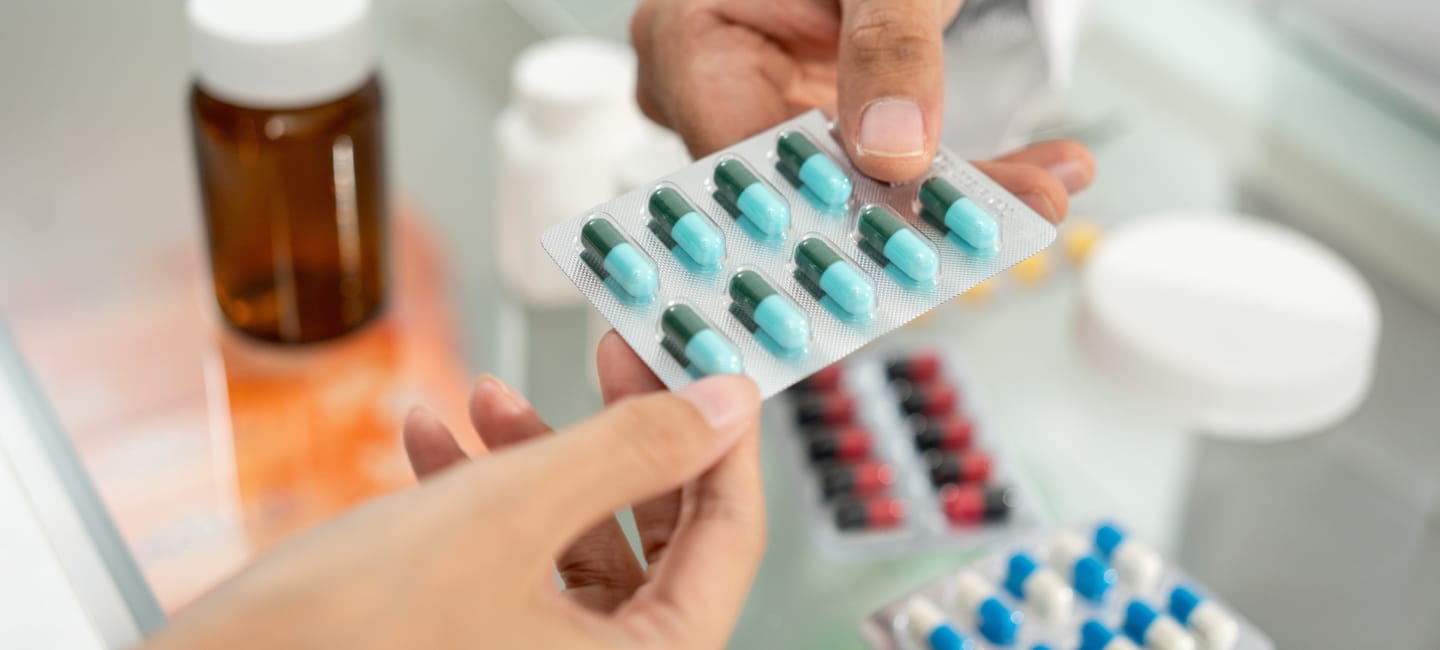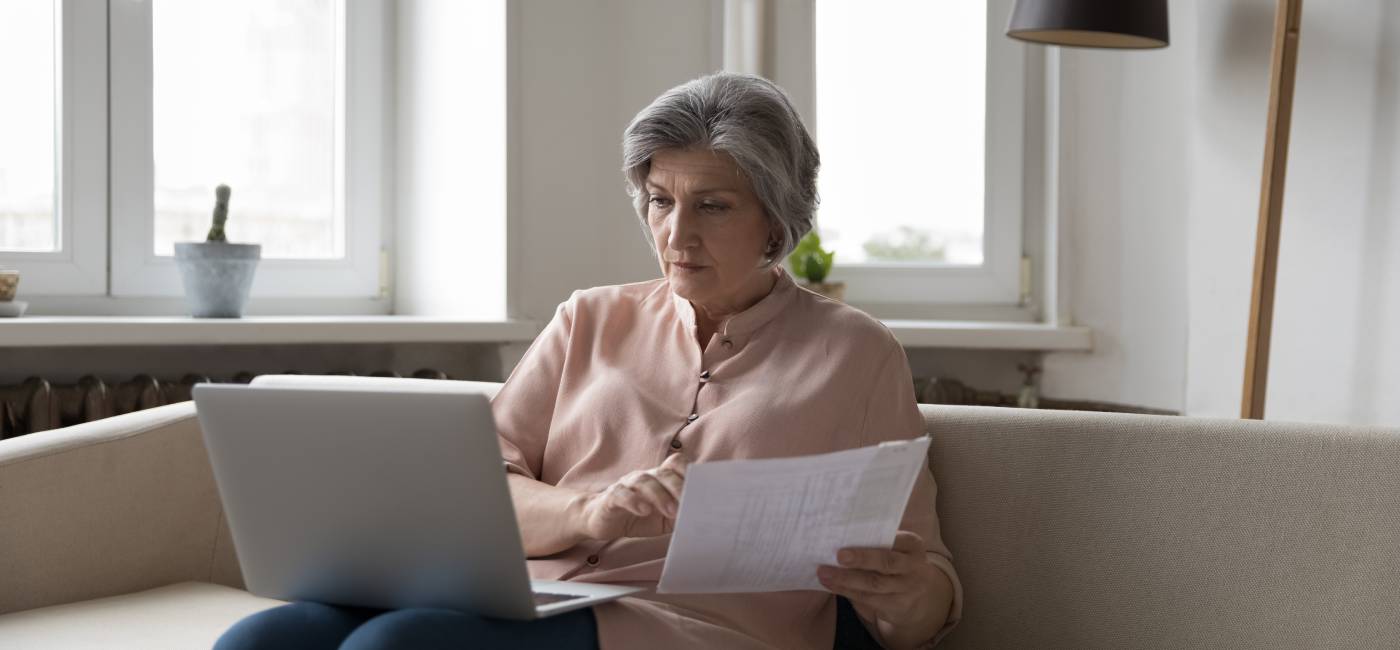

We explain the rules for free prescriptions, vaccinations, and other health services for older people. Plus, see our 7 tips for getting free health treatment.

As we get older, many of us find our health issues seem to multiply. The one upside is that you become entitled to a range of free or discounted NHS services that can save you a significant amount of money each year. Think of it as a loyalty bonus for a lifetime of contributions.
This guide will walk you through all the NHS entitlements available, from free prescriptions to eye tests and essential vaccinations. We’ll explain exactly what you can claim and how.
What’s on this page?
Sebrina McCullough, director of external relations at debt adviser Money Wellness, says thousands of over-60s face higher living costs than younger people because of illnesses that become more complex and frequent as we age.
“Many over-60s need daily medication to manage their chronic conditions. The cost of these medications can quickly add up, especially for those taking multiple prescriptions,” she adds.
In England, once you turn 60 you’re entitled to free NHS prescriptions. This means not having to pay the standard prescription charge.
You’ll simply need to be able to show proof of age, such as a passport or driving license – although your date of birth should already be printed on most prescriptions.
In Scotland, Wales and Northern Ireland, NHS prescriptions are free for everyone regardless of age.
If you live in Wales but your GP is in England, you can still get free prescriptions in Wales with an Entitlement Card.
Not yet 60? If you need regular prescriptions you could save money with an NHS Prescription Prepayment Certificate (PPC) – more on this below.
Turning 60 also means you can get free eye tests through the NHS. (All NHS eye examinations are free in Scotland, whatever your age.)
You can book your eye test through most high street opticians. They reclaim the fee from the NHS directly.
Tina Patel, contact lens optician at Feel Good Contacts, advises having an eye test every two years, or as recommended by your doctor or optician.
“An eye test can pick up on early signs of diabetes, glaucoma and even brain tumours. Most high street opticians in the UK offer free eye tests funded by the NHS to those who qualify, and it’s usually a simple and easy process of booking an appointment to get a free eye test at most opticians.”
Unfortunately, age doesn’t entitle you to free dental treatment in England or Northern Ireland.
But you might be eligible for free dental treatment if you or your partner receive the ‘guarantee credit’ part of pension credit, or universal credit.
To prove eligibility, you’ll need to bring your benefits letter or HC2 or HC3 certificate to show you’re receiving the credits.
In Scotland, everyone can get free dental check-ups on the NHS. You can also get them free if you’re over 60 and live in Wales.
NHS hearing tests are free for all ages and can be booked through your GP or some high street opticians and pharmacies. If you can’t get to a face-to-face hearing test without help, you may be eligible for a free check at home. Your GP can advise about this.
If you’ve got an NHS hearing aid, you can get free batteries and repairs from any NHS hearing aid service.
The annual flu jab is offered free of charge across the UK to anyone aged 65 or over, or who is turning 65 this winter. You can also get a free vaccination if you’re under 65 and have a long-term health condition putting you at risk of complications if you catch flu (such as a heart or lung condition, asthma, diabetes or weakened immunity).
The flu jab is free if you receive carer’s allowance or are an informal carer of an older person who relies on you for care and would be at risk if you became ill.
For all of these vaccines, your GP should contact you to make an appointment, but you can contact them if you haven’t heard anything.
1. For free flu, pneumococcal, shingles, RSV, or Covid booster vaccines, your GP should contact you – but if you’re eligible and haven’t heard from them, don’t hesitate to ask for an appointment.
2. If you’re over 60, keep proof of age with you when collecting prescriptions (except Scotland, where they’re free anyway).
3. NHS entitlements vary across England, Scotland, Wales, and Northern Ireland. If you live near a border or have a GP in a different nation, check which rules apply to you and ask about an Entitlement Card if needed.
4. If you plan to claim a refund, ask the chemist for an NHS prescription refund receipt when you get your prescription.
5. If you’re claiming free dental treatment or help with glasses due to low income or pension credit, bring your benefits letter or HC2/HC3 certificate to your appointment as proof.
6. If you’re on a low income, look into the NHS Low Income Scheme (LIS) and Pension Credit. These can unlock additional benefits like free dental care, help with glasses, and travel cost support.
7. If you can’t get to a clinic for a hearing test, ask your GP if you qualify for a free check at home.
8. If you need more than three prescriptions a month and aren’t yet eligible for free prescriptions, a Prescription Prepayment Certificate can save you money.

If you’re over state pension age and on a low income, pension credit gives financial help with your living costs by topping up your income.
Pension credit also unlocks other benefits. If you or your partner get pension credit guarantee credit or pension credit guarantee credit with savings credit, you’ll also be entitled to
You might also get help towards travel costs to receive NHS treatment via the Healthcare Travel Costs Scheme (HTCS).
Helen Morrissey, head of retirement analysis at Hargreaves Lansdown, warns that pension credit remains an underclaimed benefit. So it’s worth checking whether you are eligible to receive pension credit.
“As well as topping up the income of the poorest pensioners, pension credit acts as a gateway to further help such as help with NHS costs, council tax and a free TV licence for the over-75s,” she explains.
If you’re on a low income, you may be able to get some help with health costs through the NHS Low Income Scheme (LIS).
“The NHS LIS scheme can help with some of these costs by providing free or discounted prescriptions for those on a low income, as well as free dental treatment, eye tests and vouchers towards the cost of glasses or contact lenses,” explains McCullough.
It can also help with the cost of travelling to receive NHS treatment.
To qualify for the low income scheme, you must have less than £16,000 in savings or investments, including property that’s not your main home. The limit is £23,250 if you live in a care home, or £24,000 if you’re in a care home in Wales. You also need to have a low income – there isn’t a set threshold; instead your weekly income will be compared to your essential outgoings to see how much there is left.
You can be assessed as receiving either limited or full help with NHS costs. You’ll then get either a HC3 or HC2 certificate, which you must then show to prove you are eligible for free or reduced-price treatment.
You might be able to get a refund on some health costs if you had to pay for prescriptions while waiting for a decision on pension credit, or if you were waiting for your NHS LIS certificate to arrive.
Ask the chemist for an NHS prescription refund receipt – called a FP57 form (or WP57 in Wales). You must ask for it when you pay for your prescription, because you can’t get the form later, and you’ll need to claim the refund within three months.
You might also be able to get refunds for other health charges paid within the past three months if you find you’re eligible for a qualifying benefit. Details of how to do this are on the NHS website – you’ll need to fill in a HC5 refund form.
Remember to keep the receipt for any payment you’ve made, if you might want to claim it back.
If you’re under 60 you can save money on prescriptions by buying a prescription prepayment certificate (PPC) from the NHS. These cost £32.05 for three months or £114.50 for 12 months, covering all your prescriptions for that period. They will save you money if you need more than three prescriptions a month.
You can buy online or by phone on 0300 330 1341.
Women on NHS-prescribed hormone replacement therapy (HRT) can buy an annual HRT PPC for a one-off payment equating to the cost of two single prescription items (£19.80).
Anyone over state pension age with an income of less than £35,000 should receive the winter fuel payment, a tax-free lump sum of between £100 and £300. (If your income is over £35,000, you’ll still receive it, unless you have opted out, but you’ll have to pay it back.)
Every water company has a social tariff which can help reduce water bills for low-income households. The details can vary, so contact your water company for more information.
If you are on certain benefits in England and Wales, and have a health condition that means you might need to use more water (including Crohn’s disease, abdominal stomas or incontinence), you may be eligible for the WaterSure scheme. You’ll need to have a water meter or be willing to get one.


Get quicker diagnosis and treatment with nationwide private hospital options. There’s no upper age limit and you won’t need a medical.


Don't risk missing out on vital benefits – find your National Insurance number today.

We explain the shelved PIP reforms and what's next for universal credit.

Don’t miss out – stop waiting to earn interest on your savings

Discover how to assess how much you can safely afford to spend or give away.